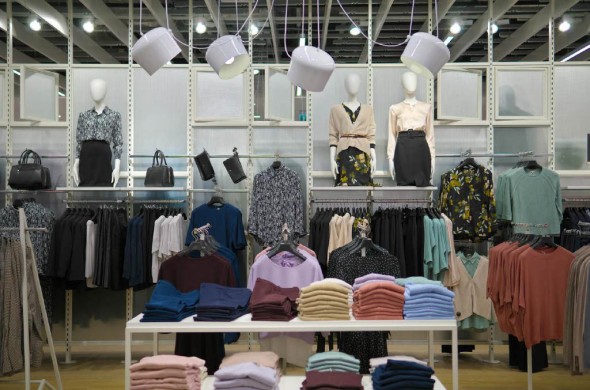The past two years have impacted consumer habits so drastically that many retailers have had to rebuild their models from the ground up. Others have aligned to evolving markets more subtly, but every retailer has felt the impact.
In the age of the digital consumer, a refusal to adapt is the quickest way to get left behind. Here are some of the major shifts to observe in 2022.
Essential goods still a top priority
When COVID-19 substantially slowed down global economies, a decline in income followed, consumers focused more on essential goods. In a 2021 survey on pandemic-relating spending habits, 90% of United Arab Emirates (UAE) and Saudi Arabia respondents prioritized needs over wants in an effort to decrease their spending.
Digital migration and omnichannel retail
The migration to online shopping is one of the most significant market shifts in recent history. Almost 35% of consumers in MENA regions said the retail industry was ready for a digital shift as early as 2020. MENA e-commerce sales rose to around $42 billion that year, with Egypt, the UAE, and Saudi Arabia identified as dominant markets.
Going forward, businesses will need to coordinate their marketing efforts by investing in omnichannel retailing. Now more than ever, consumers expect a seamless shopping experience online.
An all-digital world for emerging generations
The UAE e-commerce market saw a 53% increase in 2020, with sales reaching nearly $4 billion that year alone. This boost was partly driven by a new type of consumer: the digital native.
Comprised of Millennials and older Gen Z, an all-digital marketplace makes perfect sense to this tech-savvy group. It offers them the convenience and accessibility that traditional retail stores can’t, and ample opportunity to share the experience with each other.
Health-minded and caring economy
It should be no surprise that more health-conscious consumers rose out of a global health crisis, but what does this mean for retail? As part of a survey conducted in the Middle East, almost 80% of restaurant operators found customers wanted healthier food options. Demand for online food delivery also surged alongside a desire for more sustainable, plant-based meals.
Homebody economy
Although consumer optimism in the UAE and Saudi Arabia remains high, economic recovery doesn’t necessarily mean an end to the homebody economy. 65% of UAE consumers reported not returning to outdoor activities just yet.
Contactless shopping is still a safe, convenient alternative to visiting brick-and-mortar stores and offers more personalized shopping options.
Personalization, privacy, and security
Digital markets are governed by user data. Tech-savvy consumers are aware of the value and risks associated with this. On one hand, user data helps retailers create bespoke consumer experiences based on individual interests - personalization.
On the other hand, digital customers still expect transparency around their data, and who has access to it. A personalized experience is only as valuable as their privacy. Underinvesting in data security measures is a mistake retailers can’t afford to make, not with the reputational and legal risks involved.
Supply and demand swings
Even though digital channels have developed fairly consistently, consumer behavior within them remains volatile. The focus on essential goods in 2020 led to a higher demand for basic foodstuffs and bulk buying. By the time supply chains managed to keep up, demand had shifted again, leaving retailers with an expensive surplus.
Going forward, supply chains will need to be more flexible and responsive to keep up with these fluctuations.
Experiential rebalancing
For all the emphasis on omnichannel retailing, there’s still a significant divide between physical and online shopping. While physical stores still account for the majority of sales, consumer traffic has shifted online for the most part. That said, physical stores are as valuable as an online presence when it comes to multichannel branding.
Retailers still need to integrate brick-and-mortar stores with the online shopping experience though. Utilizing both assets is the key to remaining flexible when markets inevitably shift again.
Rising cost of living
Property prices and rent in Dubai rose by 10.2% in January 2022, the fastest rate since 2015. With the cost of living on the rise, middle and lower-income consumers will once again have to reconsider their spending habits. Reduced spending also means slower economic recovery for the retail sector.
Consumer behavior follows several trends in times of significant inflation. Discounts and promotional sales become more appealing again. Consumers may also offset price hikes by buying in bulk or turning to tiered pricing models like monthly subscriptions.
Online retail is well-positioned to accommodate these shifts, but only when retailers proactively adjust.
Brand loyalty
The last two behavioral trends concern changing consumer attitudes. Specifically, how social values are redefining consumer-brand relationships.
When it comes to fostering brand loyalty, physical stores have a few innate advantages. Real-world stores can lean on physical proximity, familiarity, foot traffic, and frontline employees to develop customer relationships.
Online retailers have to account for more social dynamics. In an online marketplace, community impact and shared values play a larger role in consumer decisions. With online retail still more vulnerable to disruptions than physical, customer support and painless shopping are the main routes to brand loyalty.
Sustainability and brand ethics
Sustainability has become a major consideration for consumers. With a wider selection of retailers online, they can afford to be more discerning with which brands they empower with their spending.
In 2022, consumers want brands with ethical, environmentally friendly practices, or at the very least a purpose-driven message that aligns with their values. Consumers know what they want, both in the products they buy and the brands that supply them. They’ll gravitate towards brands that meet their expectations on both fronts.
Consumer Goods Consulting | Retail Consulting Services
Ollen Group is one of the leading consumer goods and retail consulting firms in the Middle East & Africa (MEA) region offering consumer goods consultancy services and retail consultancy services from strategy to execution, as well as design, development, and deployment.
Read our latest insights, ideas, and perspectives that explore the trends shaping the future of business and society. Our consultancy services go hand-in-hand with these insights, confirming our position as industry leaders. Get in touch to find out more about our consulting services and industry expertise.



